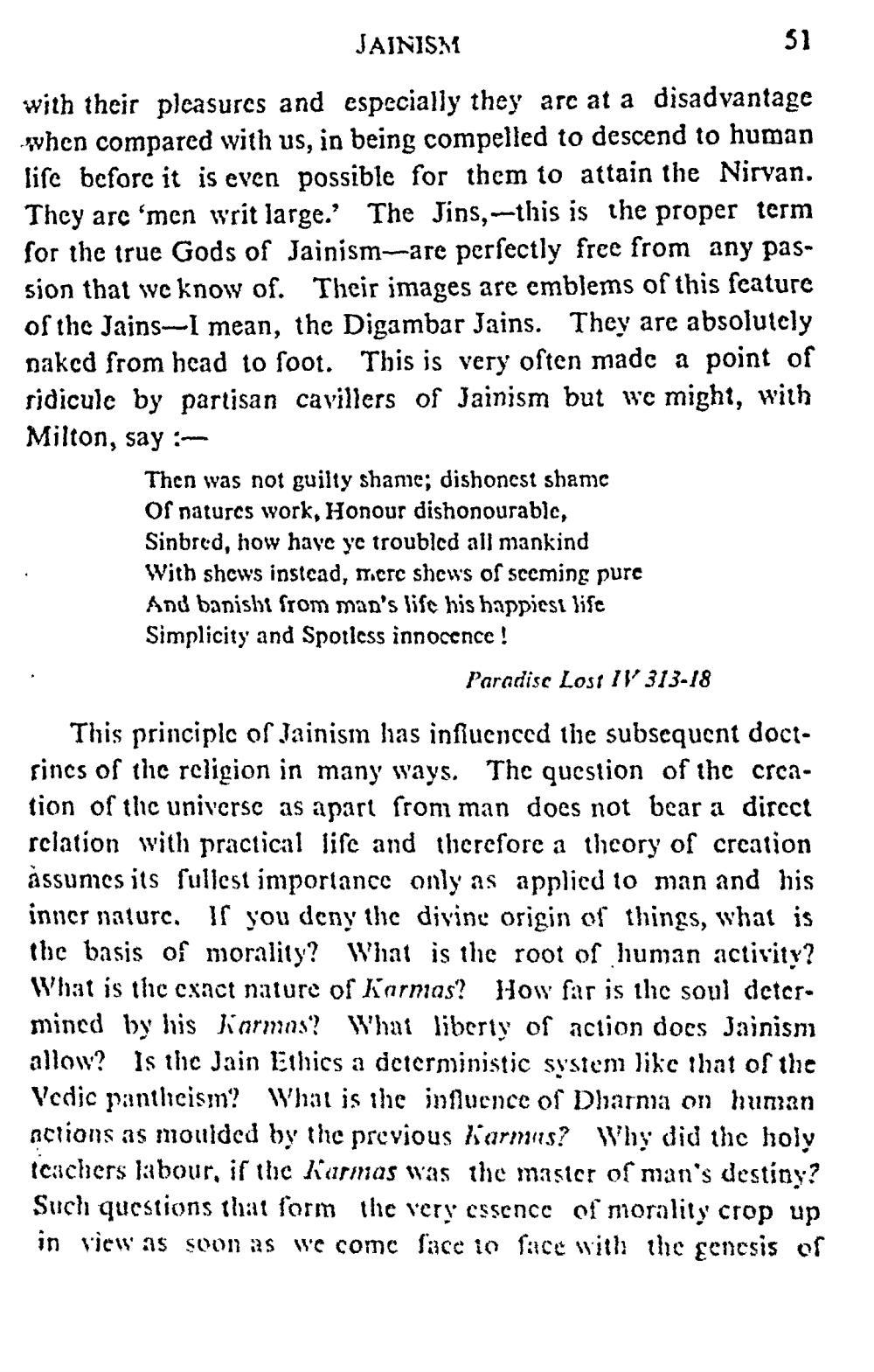________________
JAINISM
SI
with their pleasures and especially they arc at a disadvantage when compared with us, in being compelled to descend to human life before it is even possible for them to attain the Nirvan. They arc 'men writ large.' The Jins, - this is the proper term for the true Gods of Jainism are perfectly free from any passion that we know of. Their images are emblems of this feature of the Jains I mean, the Digambar Jains. They are absolutely naked from head to foot. This is very often made a point of ridicule by partisan cavillers of Jainism but we might, with Milton, say:
Then was not guilty shame; dishonest shame or natuscs work, Honour dishonourable, Sinbred, how hayc ye troubled all mankind With shcws instead, m.cre show's of sccming purc And banishi from man's life his happiest life Simplicity and Spoiless innocence !
Paradise Lose IV 313-18
This principlc or Jainisin las influenced the subscqucnt doci. rincs of the religion in many ways. The question of the crcation of the universe as apart from man does not bear a direct rclation with practical life and therefore a theory of creation àssumes its fullest importance only as applied to man and his inner nature. If you deny the divine origin of things, what is the basis of morality? What is the root of human activity? What is the exact nature of Karmas? How far is the soul deter. mined by his linrmos? What liberty of action does Jainismi allow? Is the Jain Ethics a deterministic system like that of the Vedic panthicism? What is the influence of Dharnia on human actions as mouided by the previous Kerms? Why did the holy
cachers labour, if the karmas was the master of man's destiny? Such questions that form the very essence of morality crop up in view as soon as we come face in face with the genesis of




